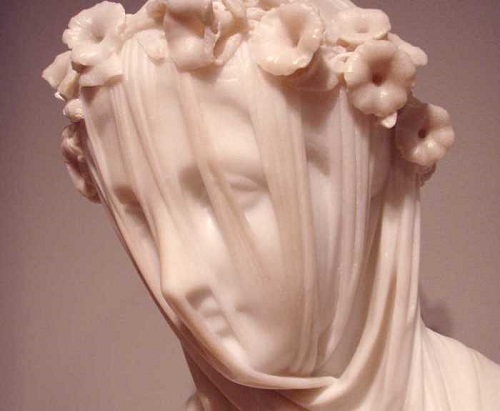FWP:
SETS == CATCH-22; GESTURES; HUMOR
VEIL: {6,1}
On the grammar of chho;Raa chaahiye , see {1,3}.
Why ought the beloved to leave off hiding her face from the lover? As the lover teases the beloved, here are some possible reasons:
=Because people will think that if she's hiding then there must be something to hide, so they'll become suspicious of her carefully hidden face. (This is the commentators' general reading.)
=Because the lover knows that such a show of aloofness is really a disguise for attraction. She ought to stop using that disguise-- it not only doesn't work, but also reveals to him ever more piquantly how fond she is of him.
=Because the lover knows that she really is fond of him, and she knows he knows it too, so there's no need for coyness or shyness. She should just relax, and stop pretending.
=Because a show of aloofness usually cloaks friendship or intimacy, but in this case the cruel beloved actually hates the lover-- so she should cease to send false signals by veiling herself from him. She should show her disdain openly, by not bothering to veil herself from him.
A wide range of moods and paradoxical, 'Catch-22' arguments; as usual, we're left
to make our own choices. But the striking, cryptic first line resonates and
keeps on resonating. How can there be an end of what it might mean? For another
such ambiguous meditation on the nature and uses of pardah, see {198,2}. Even more paradoxically and enjoyably, there's the dense thicket of {332x,8}.

Nazm:
That is, when you hide your face and become a stranger, then in this veiling affection is found. This is, so to speak, a taunt directed at the beloved, through which trick she would leave off veiling herself, and he would attain his goal. (211)
== Nazm page 211